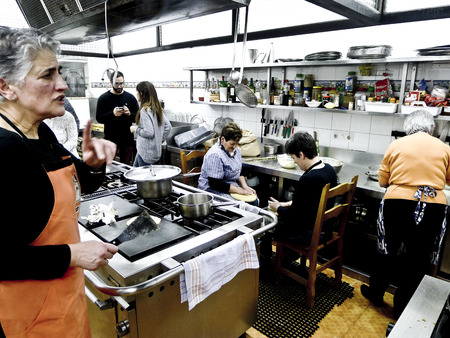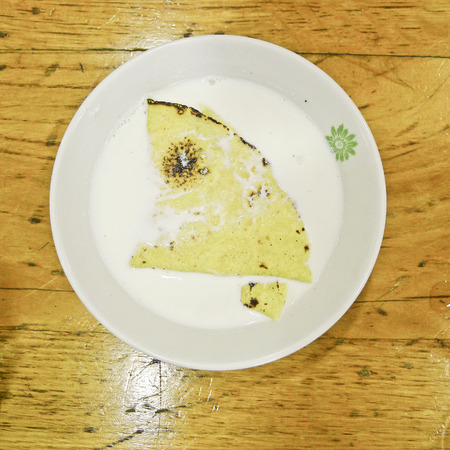Talojana + The New Year
"We like to semi-start the year off with a dinner of talos in good company."
This week, several friends and members of a club in San Sebastián devoted to good eating gathered in a dining society perched above the old part. The occasion? A talojana.
Part of what, for me, marks an important cultural difference here in Basque Country is that even young people cling to years-old traditions. And they don't do it self-consciously, for the most part—they do it because yes. Because it's just what you do. A talojana to ring in the New Year isn't really a Basque tradtion, it's more one that friends have invented among themselves. But the talo is about as Basque as it gets.
From the time corn was introduced to europe in the 15th and 16th century, it has been cultivated in Basque Country, and at a high value. In the 1700s, documents indicate that corn and chestnuts were twice as valuable as other commonly traded products such as beans, apples, and flax. In other parts of Spain, they were a bit more suspicious, as you can tell from Juan Ignacio de Iztueta's 19th century defense:
The rest of Spain doesn't appreciate this wonderful food, saying it's bland and heavy, animal food, and other crap like that . But in Gipuzkoa, they eat it abundantly, and it produces beautiful rosy skin, soft to the touch, robust, good-looking and happy boys and girls that equal the number of those in Castilla.
Oh-kayyyy....
For our talojana, or talo-eating party, we brought in an army of ladies from the loveliest village in the world, Ataun. Tere, Martina and company showed us how to add boiling water and a pinch of salt to the corn flour until the desired consistency was achieved, then forming balls, rolling them on a round wooden cutting board and patting them until they are thin and ready to be grilled. I stopped counting pats at 150. A second on the plancha and out comes a perfect talo, looking like a Mexican tortilla but with a far cornier taste.
Fill with pancetta, txistorra, cheese, or chocolate and enjoy. Warm, preferably with cider.
Or, you can enjoy in another, very typical manner:
This is talo in milk, something that was quite a common dinner in many poor rural households. Properly served with a pinch of salt, the talo softens in the milk. And makes you pretty sleepy.
I leave you with an old Basque proverb:
Talo beroak gazta du jaki; hori edonork daki.
(Hot talo begs for cheese. Everybody knows it).


